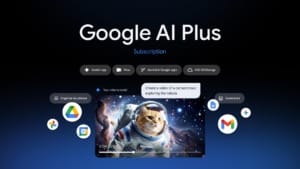Neato cloud shutdown leaves robot vacuums limited to manual operation
Neato’s cloud services are shutting down, leaving its robot vacuums without app control and limited to manual operation.

Neato Robotics’ robot vacuum cleaners are losing their cloud-based features, leaving users with devices that can only be operated manually after 18 November. The shutdown follows the company’s closure in 2023 and marks the end of app-supported functionality for thousands of households that have relied on Neato’s automated cleaning systems.
Table Of Content
The change means Neato’s vacuums will no longer connect to the MyNeato app, removing the ability to schedule cleanings, monitor progress remotely, or integrate the robots with smart home platforms. The update has been communicated to owners via recent email, confirming that cloud access will no longer be available.
Company closure and cloud service challenges
Neato Robotics, a US-based firm known for its D-shaped robot vacuum design, ceased operations in 2023 after years of market competition with brands such as iRobot and Roborock. The company was acquired by Vorwerk in 2017, a German manufacturer best known for its Thermomix kitchen appliance. Following Neato’s shutdown, Vorwerk continued to run the cloud service to fulfil an original pledge that customers would receive at least 5 years of cloud connectivity support.
However, the company has now said that operating the legacy systems is no longer viable. However, cybersecurity standards, compliance obligations, and regulations have advanced in ways that make it no longer possible to safely and sustainably operate these legacy systems.”
Neato had previously stated earlier this month that cloud access would be phased out, meaning the news is consistent with recent announcements, though nevertheless disappointing for customers who structured their cleaning routines around smart control features.
Impact on users and device functionality
The loss of cloud connectivity significantly reduces the functionality of Neato’s robot vacuums. Without access to the MyNeato app, the devices can no longer map rooms, schedule automatic cleaning times, or operate remotely. Instead, users must physically start the vacuum from the device itself, limiting much of the hands-off convenience that made robot vacuums appealing to many households.
While the core vacuuming function remains intact, owners will no longer be able to update software, manage cleaning preferences digitally, or track the robot’s activity. For those who purchased Neato devices expecting ongoing smart features, the shift may feel abrupt, despite the company’s previous communication.
The decision also raises broader concerns among smart home users about long-term support for connected devices. As more household appliances rely on cloud services, the discontinuation of those services can render once-premium products less valuable. In Neato’s case, customers who invested in higher-end models designed around mapping and app-based control may feel the strongest impact.
Broader industry implications
This development reflects a growing trend in the connected appliance market. As companies evolve or exit the industry, maintaining cloud infrastructure can become costly or impractical. Regulatory and cybersecurity obligations continue to expand, making it harder for firms to support discontinued products indefinitely.
The situation also highlights ongoing consumer concerns regarding the longevity of smart devices. When a product’s core functionality depends on cloud connectivity, customers may experience reduced performance if the service is discontinued. As a result, some consumers are increasingly considering whether devices offer local control options that operate independently of cloud servers.
For now, Neato owners are encouraged to prepare for their devices to operate offline, using on-device buttons rather than app-based scheduling.
















